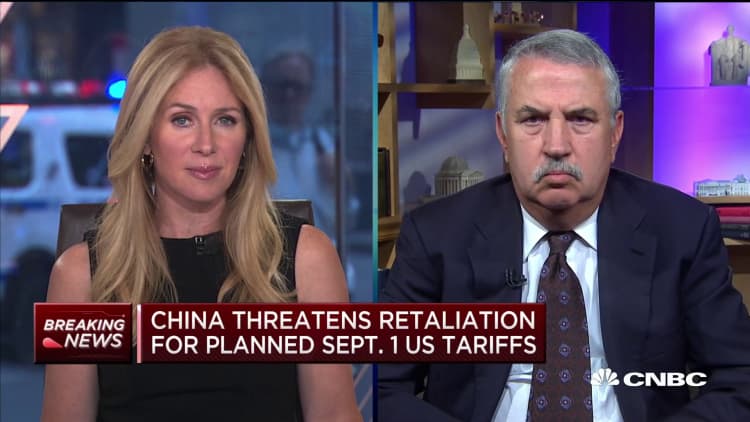
New York Times foreign affairs columnist Thomas Friedman praised the Trump administration on Thursday for taking action against China on trade, though he said he never thought a tariff strategy was the right move.
"My feeling was the president was right," Friedman said on CNBC's "Squawk Box." "The structure of U.S.-China trade had changed, and the game had to be called, in this sense."
China went from being a low-income nation to middle-income through hard work and "nonreciprocal trade arrangements" such as forced technology transfers and intellectual property theft, said Friedman, the three-time Pulitzer Prize-winning columnist and best-selling author.
"If we use that from poverty to middle income to grow from middle-income to high-income, all of the partners would be crazy," he added. "I was a fan of getting tough."
Friedman said he was a proponent of the Trans-Pacific Partnership, the free trade agreement that would have aligned economies across the world with the U.S., as a way to counteract China's trade tactics. TPP was initiated by Republican former President George W. Bush and negotiated and finalized by Democratic former President Barack Obama.
However, President Donald Trump, whose GOP campaign in 2016 for the White House sought to kill the deal, pulled the U.S. out shortly after he was inaugurated. He decided later to go after China through the use of tariffs
Earlier this month, he said the U.S. would impose duties on the remaining $300 billion of Chinese imports, starting Sept. 1. This week, he removed some items on the list and delayed tariffs on others until mid-December. Beijing early Thursday said it would take tariff countermeasures, but later said it hopes to "meet the U.S. halfway."
"I wish there was a better strategy," Friedman said. "You see the pain being inflicted on both societies. I just don't see how this is going to come to resolution."


